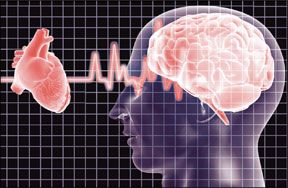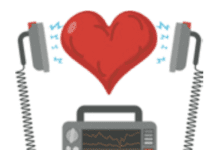When the American Heart Association (AHA) released a statement last fall calling for heart patients to be screened for depression, it helped cement the idea that mental health and heart health are undeniably connected. In recent months, several studies have underscored the idea that how we cope with stress, anger and depression can have significant effects on how we survive heart attacks, strokes and heart disease in general, says psychiatrist Leo Pozeulo, MD, an associate director of the Earl and Doris Bakken Heart Brain Institute at Cleveland Clinic. "Theres a lot of good information coming out now thats building on what weve known for the last 10 or 15 years," Dr. Pozuelo says. "We know that depression can be a risk factor for heart disease, and if you have heart disease and depression the outcomes are going to be worse." For example, a 12-year study, involving more than 63,000 women and published in the March 17 issue of the Journal of the American College of Cardiology (JACC), found that even relatively healthy women with severe depression are at an increased risk of cardiac events, including sudden cardiac death and fatal coronary heart disease (CHD). An earlier study of 141 men and women, published in the December issue of the AHA journal Stroke, noted that survivors of subarachnoid hemorrhage (bleeding in the brain) have significantly worse quality of life if they display symptoms of anxiety, depression, and/or fatigue.
To continue reading this article or issue you must be a paid subscriber.
Sign in






